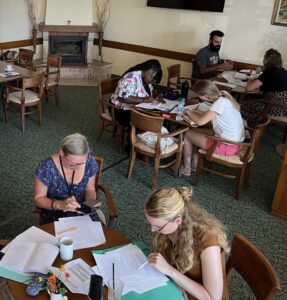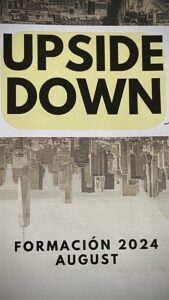 Recently, I’ve been reading through Ecclesiastes. It’s been a while since it came up in my devotional reading, and I’ve been struck not only by the relevance this enigmatic book has to contemporary questions, but also the role of Qoheleth, ‘The Teacher’.
Recently, I’ve been reading through Ecclesiastes. It’s been a while since it came up in my devotional reading, and I’ve been struck not only by the relevance this enigmatic book has to contemporary questions, but also the role of Qoheleth, ‘The Teacher’.
Qoheleth sought meaning and satisfaction in life, guided by wisdom. From what could be observed, he saw the benefits of wisdom, pleasure, and wealth. He weighed each and concluded that there was benefit in one condition and less in its opposite (e.g. wisdom and folly, riches and poverty) … Yet, despite wisdom being better than folly, the inescapability of death renders the benefits limited, just as human beings are (Ecc. 2:14). So, what’s the point?
Whether we are good students, hedonists, financiers, or family members, this can all sound rather hopeless. Like in Ecclesiastes 3, we need to go beyond just observing life in all its extremes and complexities and rejoice in what God has given us. We must acknowledge the limits of our possible understanding and rely on the One whose knowledge is not constrained, and whose days are without end. That is, we need to listen to what God says, His wisdom – about life, satisfaction, and our value systems!
As we walk with Christ this academic year, we want to see the alternative truth to the visible, to listen to and rely on God in His Word and find joy in fearing Him.
How can we learn contentment in all our circumstances (like Paul, Philippians 4:11-12), and walk in wisdom?
We’re offered a place to start in Qoheleth’s example:
- of his personal commitment to learning, which goes together with a
- posture of curiosity and listening. And, because he passes on what he has learnt to the assembly, there can be
- growth as a community. What he spoke/shared with the community then, and us today, seems to invite feedback, provoke questions, and promote reliance on the eternal God: the true source of life and wisdom (Ecc. 12:13-14).
I wonder at what point this example challenges us and others today? Are we committed to learning from the Living Word, Jesus, who said ‘Take my yoke upon you and learn from me…’ (Matt 11:28)? This means more than seeking comfort or soundbites but coming to Him in this posture of curiosity and listening.
Perhaps our prayer is first to grow in the humility that opens our ears to hear and then to walk in obedience on campus and in our families… as well as to share what we are seeing and learning…
Paula
IFES Associate Secretary for Scripture Engagement





